Ignoring debt collectors may feel like an easy option in the short term, but in Singapore, it can trigger a chain of legal and financial consequences that are difficult to reverse. This post explains what typically happens when someone ignores a debt collector Singapore, the legal limits on collection tactics, how creditors can escalate matters, and practical steps debtors can take to minimize harm. The aim is to give clear, actionable guidance for anyone dealing with a collection contact.
How debt collection normally starts, and why ignoring it is risky
Most recovery journeys begin with a Letter of Demand or repeated calls and messages from a collection agency acting for a creditor. A Letter of Demand is not yet a court order, but it is a formal notice asking the debtor to pay within a set time. If you ignore that letter, creditors can escalate to tribunals or courts to get an enforceable judgment that legally compels repayment. Ignoring the initial demand, therefore, increases the chance of legal action, extra costs, and an enforceable judgment. Businesses across Singapore partner with licensed debt collection agencies like Info Capital to achieve faster recovery while staying fully compliant with the law
Common next steps if letters and calls are ignored
The creditor may issue a writ of summons or file a claim at the Small Claims Tribunals for smaller sums. Decisions from tribunals and courts can be enforced like judgments.
If a court grants judgment and you still do not pay, enforcement tools such as writs of seizure and sale, garnishee orders, or charging orders on assets may follow. These are legal enforcement measures to recover money owing.
You cannot be arrested simply for owing money, but legal exposure grows
A common worry is arrest. In Singapore, creditors do not have the power to arrest someone for simple contractual debt. However, there are serious legal consequences that follow non-response or deliberate avoidance: successful court claims, enforcement actions, and, in extreme cases, bankruptcy proceedings if the creditor applies and the bankruptcy threshold is met. The Ministry of Law warns debtors not to ignore Letters of Demand, statutory demands, or writs, because refusal to respond can result in bankruptcy or enforcement.
Statute of limitations, “old” debts may still be collectible under certain conditions
A creditor’s legal window to start court action is limited by the Limitation Act. Most simple contract debts have a six-year limitation period from when the cause of action accrued. However, there are important caveats: the clock can reset if the debtor acknowledges the debt in writing or makes a part payment, and different rules apply in special circumstances. So ignoring letters while assuming a debt will simply “expire” is a risky strategy.
What debt collectors are allowed and not allowed to do
A bad debt collection agency must operate within Singapore law. They cannot use threats, violence, excessive contact, public shaming, or other tactics that amount to harassment. The Protection from Harassment Act (POHA) can be used by debtors who face abusive behaviour from collectors. In addition, the Debt Collection Act and related licensing and conduct rules aim to regulate industry behaviour. If a debt collection agency breaches these rules, it can face penalties and enforcement action. If you experience harassment, you can report it to the police and relevant authorities.
Read more about: Rights of Consumers When Dealing With Debt Collectors in Singapore
Escalation routes creditors use when ignored
Small Claims Tribunal (SCT) — For consumer or contractual claims within monetary limits, creditors may use SCT for quick disposal. Tribunal awards can be enforced like court judgments.
Civil suit in State or High Court — For larger or complex claims, creditors can start court proceedings. If judgment is obtained, enforcement remedies follow.
Bankruptcy proceedings — If the sum meets the threshold and the debtor is unable to pay, a creditor may petition to make the debtor bankrupt. Bankruptcy has long-term consequences for assets, credit, and employment options.
Financial and practical consequences of ignoring collectors
- Higher total cost: Interest, late fees, legal costs, and enforcement fees make the debt larger.
- Damage to credit reputation: While private credit bureau records have their own rules, court judgments and enforcement actions will make future borrowing harder.
- Enforcement of assets or income: Court-ordered garnishee or seizure can affect bank accounts, salary, or property.
- Bankruptcy fallout: Being declared bankrupt restricts financial activity, can affect employment in regulated sectors, and remains on public records for several years.
What to do instead of ignoring debt collectors
Open communication and verification
Always respond. Even a short reply that asks for time to verify the debt or requests written proof can slow escalation and avoid the “no reply = no defense” impression. Ask for a written statement of the debt, invoice copies, and the collection agency’s credentials.
Negotiate and document arrangements
If you cannot pay in full, propose a realistic repayment plan in writing. Creditors often prefer structured repayment to lengthy legal action. Make sure any agreed terms are documented and keep proof of payments.
Seek professional help early
If the debt is large or disputed, seek legal advice or consider mediation through organisations such as the Singapore Mediation Centre. For personal financial distress, consider financial counselling and explore alternatives to bankruptcy. The Ministry of Law and other official pages provide guidance on alternatives to bankruptcy and debtor options.
Practical financial consequences of ignoring debt collectors
Ignoring debt collectors often means interest, late-payment fees, and legal costs continue to accumulate. Beyond the raw increase in the amount owed, an unpaid judgment can reduce future borrowing capacity, affect secured credit, and complicate business operations for corporate debtors. For individuals, unresolved judgments may make it more difficult to obtain mortgages, credit cards, or business loans. For companies, unresolved debts can strain supplier relationships and damage reputations. These ripple effects are costly and usually far greater than the price of addressing the debt proactively.
Why does working with a professional debt collection agency benefit both the creditor and the debtor?
A reputable debt collection agency adds value by documenting attempts to recover, proposing realistic repayment plans, using mediation and negotiation to resolve disputes, and escalating to the correct legal route only when necessary. From the creditor’s perspective, this reduces collection timelines and legal spend. From the debtor’s perspective, early engagement often leads to flexible, humane arrangements that avoid court and enforcement action. In short, a professional collection creates space for solutions before escalation becomes necessary.
Good-faith engagement often removes the need for litigation
Most collection cases are resolved without full court proceedings. Negotiation, mediation, or a structured repayment plan can settle the account and prevent the addition of legal costs, enforcement fees, or a damaging court record. Timely communication demonstrates willingness to resolve and frequently results in better outcomes for both parties. Debt collectors and creditors often prefer settlement because it is faster, less costly, and legally cleaner than prolonged litigation.
Read more about:
- What to Expect When Working with a Licensed Debt Collector in Singapore
- Why Hiring a Professional Debt Collection Agency Saves You Money
- Top Strategies for Bad Debt Collection in the Singapore Market
What debt collectors must not do, and what protection debtors have?
While the system favors lawful recovery, collectors are prohibited from harassment, threats, or unlawful entry. The Protection from Harassment Act applies where communications cross the line, and the Debt Collection Act provides licensing and behavioural standards. If a debtor receives threatening or abusive treatment, they can escalate complaints to authorities or seek legal remedies. This regulatory framework protects debtors while preserving lawful recovery tools for creditors.
Steps to take if you are contacted by debt collectors in Singapore
- Review documentation. Confirm whether the debt is yours and that the amounts are accurate.
- Communicate. If you owe the money, propose a realistic repayment plan rather than ignoring outreach. Professional collectors will negotiate terms.
- Seek advice. If you dispute the debt, request verification in writing and consider legal advice or mediation. The Small Claims Tribunals and eMediation avenues can resolve many disputes efficiently.
- Keep records. Save all correspondence and receipts. Good records protect your rights and help resolve disputes faster.
Summary: Ignoring debt collectors is risky and usually costlier than dealing with the problem
Ignoring debt collectors in Singapore rarely makes the problem go away. The regulated system gives creditors clear, enforceable options that escalate logically from reminders to court judgment and enforcement. Engaging early, documenting communications, and using licensed collectors or legal processes usually leads to better, fairer outcomes for both sides. Professional debt collection exists to close the gap between contractual obligations and reality while respecting legal boundaries and debtor protections.
FAQs — Useful snippet-ready answers
Q: Can a debt collector arrest me in Singapore for not paying?
A: No. Debt collectors cannot arrest you for unpaid private debts. However, if a creditor obtains a court judgment and you still refuse to comply, enforcement options and bankruptcy proceedings may follow.
Q: How long can a creditor pursue a debt in Singapore?
A: The Limitation Act normally gives creditors six years from when the cause of action accrued to start legal proceedings for most simple contract debts. The limitation period can be reset by a written acknowledgment or part payment.
Q: What counts as harassment by a debt collector?
A: Repeated abusive calls, threats, using profanity, public shaming, making false statements to third parties, or persistent unwanted contact may amount to harassment under POHA. Document incidents and report them.
Q: If I ignore a Letter of Demand, will the creditor automatically win in court?
A: Not automatically, but ignoring the letter removes an opportunity to dispute or negotiate. Creditors can file a claim; if the court finds in their favour and you do not defend, judgment may be entered against you. Responding protects your position.
Q: What should I do if I cannot pay my debts?
A: Communicate early, propose a realistic repayment plan, seek legal or financial advice, and explore alternatives to bankruptcy. The Ministry of Law and financial counsellors provide guidance on options.
Final note
Ignoring debt collectors in Singapore rarely makes the problem disappear; it usually makes the consequences harder and more expensive. Responding promptly, verifying claims, negotiating in good faith, and seeking help where necessary will usually preserve more options and reduce long-term harm. If you are facing complex debt or threats from collectors, get professional advice and keep a written record of every interaction.
Info Capital is a licensed debt collection agency in Singapore, trusted for delivering quick, lawful, and reliable recovery services for both businesses and individuals. Contact IFC today to find out how we can help.


